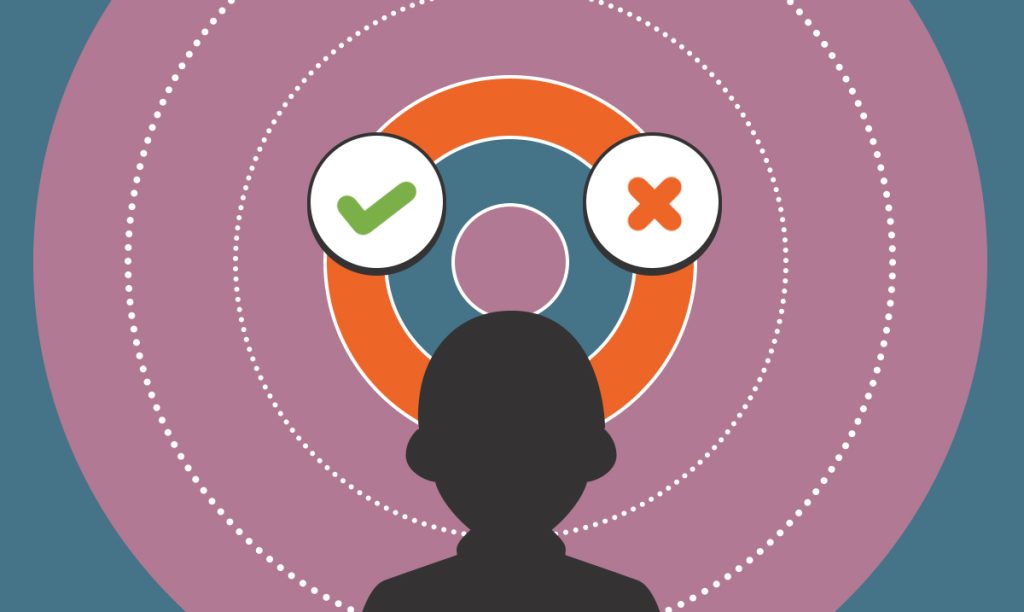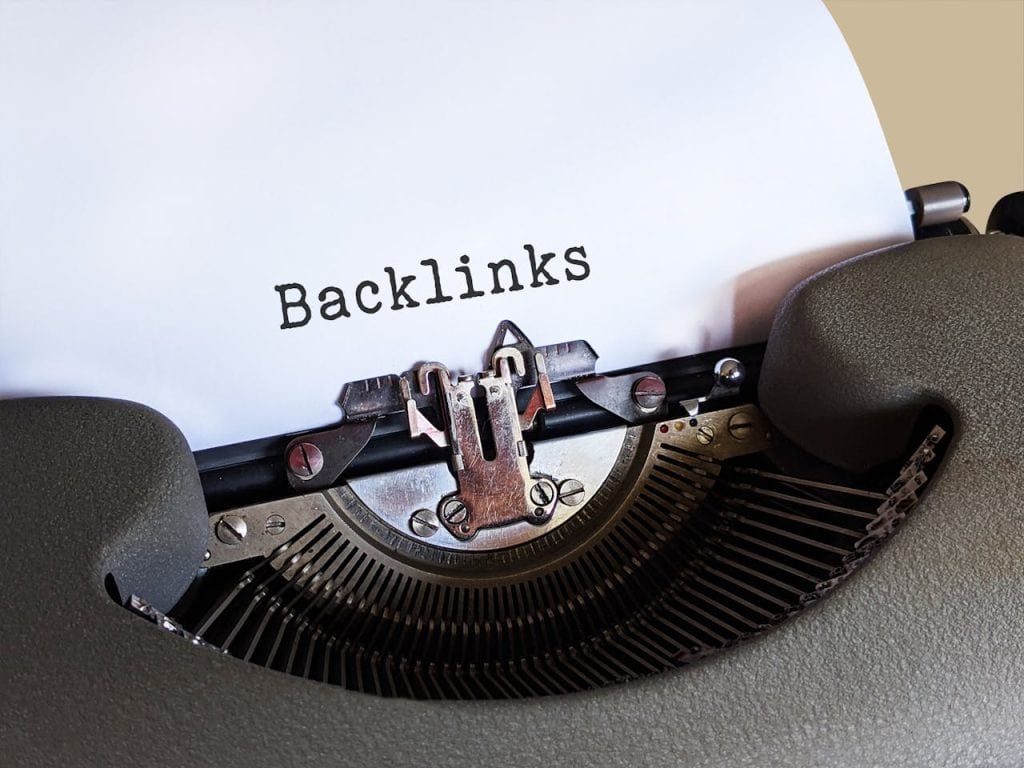So a project can feel totally wrapped up. The final files got delivered, the last invoice got paid, everyone did the polite “great working withyou ...
The Role of Ethics in Business Decision-Making
Written by: Carolyn Young
Carolyn Young is a business writer who focuses on entrepreneurial concepts and the business formation. She has over 25 years of experience in business roles, and has authored several entrepreneurship textbooks.
Published on July 30, 2024

When profit margins and market dominance often take center stage, the significance of ethics can sometimes be overshadowed. Yet, behind every successful business venture is a tapestry woven with ethical considerations and moral deliberations. In this article, we dive into the role ethics play in guiding entrepreneurial decision-making — through insights from seasoned entrepreneurs.
Ethics as the Cornerstone of Brand Integrity and Longevity
Personally and professionally, I believe ethics is the foundation on which an idea and brand is established. The truth is they can go one way or the other, but there are consequences and benefits to both paths.
Businesses/people with a strong ethical backbone create a sense of trust and reinforcement in the minds of their stakeholders. Businesses and individuals without ethical guiding principles tend to lack a unified presence and tend to implode given enough time. Think Enron, Worldcomm of the previous era, and more recently, FTX.
Tom Jackson, director of JaxonLabs
Aligning Legal Compliance with Ethical Integrity
As a legal expert, it’s always important to factor ethics into your business decision-making. Considering the ethical implications of your choice means that you don’t just think about the monetary payoff; consider the impact on your clients and any laws.
Many businesses will consider ethical business decisions through the lens of the law. Most illegal business choices are unethical, which makes them easy to avoid. However, that doesn’t mean every legal choice is ethical. While laws and regulations are designed to protect your employees and customers, businesses can often get away with making unethical decisions. Overworking team members, providing products with sub-par components, and overcharging your clients can all be legal but not necessarily ethical.
If you’re trying to decide if a business decision is ethical, consider how you’d feel if your decision was published on the front page of the newspaper or posted on social media. If you’d be embarrassed about it, there’s a chance that the choice is unethical. That feeling is a good sign that you should choose differently.
J. Tucker Merrigan, managing partner and attorney at Sweeney Merrigan Law
Creating Worth vs. Incurring Costs
My go-to approach in handling business decisions ethically begins with a simple question, “Am I creating worth or costs?”
For me, creating worth doesn’t just represent the company’s financial growth — it encompasses the welfare of the artisans we work with, the environmental footprint we leave behind, and the authenticity of our products.
For instance, our commitment to sourcing directly from global artisans allows for transparent business practices, ethical wages for artisans, and the preservation of traditional crafts.
In contrast, making a decision that creates cost signifies harm — to our values, reputation, or impact.
I firmly believe that businesses have a responsibility to contribute positively to all stakeholders involved, and the fulfillment of this responsibility begins with ethical decision-making.
Guillaume Drew, founder & CEO of Or & Zon
Prioritizing Stakeholder Well-being
I have found that companies with good ethics, positive visions, and great intentions do better and have a happier customer base. Practicing good business ethics is crucial to the success of any business, and more importantly, does good for the entire community — particularly as business can have such a large impact on our communities. My go-to approach to ethical business decision-making is stepping back and looking at things from a non-financial perspective — is this decision better for people and my customers? Is it ethical?
Thomas Patrick, owner of Aquavoss
Considering Impact on Competitors for Long-Term Success
Anytime you’re making a business decision, you want to consider how it’s going to affect others. I’ve found this is the best way to make the most ethical decision possible. Your competitors are pushing you to be better at business than you are. You don’t want to make decisions that are going to purposely harm their business because you’re going to get the same back but generally get it worse. When you make ethical moves, you’re going to see better success than if you’re destroying others in your pursuit of success.
Dan Gallagher, VP of Operations at Aegle Nutrition
Prioritizing Fairness and Mutual Benefit
My approach to any kind of decision-making is the weighing of pros and cons. When it comes to ethics, I ensure that my decisions aren’t going against something I already agreed to. No matter how much I might benefit from altering a deal, I won’t do it unless the other parties benefit equally. I think we all have a responsibility to show concern for others in all our business deals. I don’t like to take advantage.
Dustin Sitar, CEO of The Groom Club
Detaching Personal Bias from Ethical Decision-Making
When making or training others to make ethical business decisions, the first thing I always start with is ensuring this decision is not personal. No good decisions can be made for the company’s benefit if they have a personal feeling or means attached to it. Company ethics and transparency are crucial to your team’s well-being and your company’s long-term health. Amazing and qualified employees become disheartened when learning they do not, in fact, work for companies that align with their values. Whether qualified candidates leave or quietly quit, the company suffers. Starting with and maintaining ethical standards prevents all of this.
Alexis Piotrowski, owner of Orbit Leadership
Formalizing Service Guarantees
Ethics in business has irritated me ever since I started as a freelance creative in 2005. Big businesses with terrible customer service and lengthy T&Cs were making millions while I scrapped for every dollar.
These days, as a business coach, my top tip (for service-based businesses) is to offer a 100% money-back guarantee wherever possible, which is not as terrifying as it sounds.
Most service-based businesses, when faced with a problem they created, will make it right. Many will swallow hours or blow the budget to ensure their client is happy and the project doesn’t blow up. Some will even do it if it’s not a problem they created, which, in itself, is a guarantee that the project will be delivered no matter what. It simply hasn’t been formalised as a guarantee, in writing, during the sales process. It only comes up when there’s a problem, so there’s no way for a buyer to know you’ll do this for them.
Formalising what you’d do anyway to make a project right is a solid way to help new customers get over the line and purchase from you, particularly if you pitch against other agencies (who likely don’t have guarantees either).
It alleviates some buying concerns by saying, “If you don’t believe we’ve delivered on (this thing), we’ll make it right or refund 100% of your money”.
My opinion is that clients won’t want their money back— they’ll want the job completed. The formalised guarantee in writing is simply an insurance policy for your client.
Danny Ruspandini, climate-first business coach at Impact Labs Australia
Ethical Employee Treatment
Ethics is not just important but is the lifeblood of any business, leading to its long-term success. It’s the guiding principle that assists in formulating the right policies and procedures that tell businesses how to do business. Business ethics impacts not only the business but also the employees, stakeholders, customers, society, and the environment.
See the “SEE” to know more about why ethics are important:
Society: Companies that are against the production of goods through unethical means and that are harmful to the consumption of society build trust and reputation in society.
Employees: Employees play a key role in taking businesses to new heights. Ethics say a lot about the business, so strong ethics inspire people and current employees to be a long-term part of your workforce.
Environment: Organizational ethics focusing on using natural and easily recyclable materials in manufacturing their products get appreciation and garner a customer base in the market.
My go-to approach to ethical business decision-making is respecting every employee. Along with my company’s success, I have made plans and schedules that make my employees feel respected and valued. We are a completely remote working company, and I have employees in 46 countries with different time zones. It’s not in my company policy that they work 9 to 5 according to my timezone. Getting the work done is their responsibility, as for us, it doesn’t matter when and how long they work. This gives my employees peace of mind when working according to their comfort and fosters their trust in the company.
Alari Aho, founder & CEO of Toggl
Prioritizing Customer Safety
Ethics helps you make business decisions that honor your customer’s safety. In the eCommerce industry, there are many ways that unethical practices can slide. For instance, online supplements aren’t always genuine and are often laced with heavy metals that harm human health. A lack of ethics might earn you some initial sales, but it ends up tarnishing your reputation in the long run. The truth always comes out eventually.
Implementing ethics into your business model holds your company to a certain standard and morale. It holds you accountable for keeping to the values you associate with your brand identity and mission.
Michael Nemeroff, co-founder & CEO of Rush Order Tees
Having a Standard of Excellence
In business, ethics should be at the top of the list of priorities for a business person, especially when conducting business in a public setting or involving other people and their lives. I have a solid work ethic. I operate a business in the real estate industry, and when I am working with a client, whether it is to buy, sell, or invest in a property, I ask myself and others: Would you put your mother, child, or someone you value or love in this house? Always operate your business with the highest integrity. I provide a standard of service delivery that I would want someone to provide to my 90-year-old grandmother. Due to the standard of excellence I exhibit in my business, I do not want clients to feel pressured, coerced, or unclear about their options. I provide evidence-based information and/or data so that the people I work with can make data-informed decisions, which allows for a feeling of comfort and confidence in their decisions. This is one way I ensure I operate an ethically sound business.
Kimberly Briggs, real estate expert/investor/realtor at Maximum One Community
Partnering with Integrity
Your ethical business values will dictate which entities you choose to partner with. Ethics provides guidelines as to what your company will and won’t promote. If you lack good business ethics, you’re more inclined to partner with notorious brands. In turn, it will affect the nature of your followers and the length of your customer lifecycles. People rarely forge long-term relationships with skeptical brands or companies that support scandalous movements.
David Gaglione, founding partner of PS212
Democratic Decision-Making
Ethical business decision-making occurs even with the smallest of choices. For example, choosing the color for this year’s company shirt or something seemingly more significant, such as increasing or reducing PTO. All business decisions are wrapped up in ethics. The best way to deal with ethics in these scenarios is to hold a public vote. A democratic office will always win and open the floor to discourse.
Simon Bacher, co-founder & CEO of Ling App
Trusting Intuition and Seeking Mentorship
Ethics are the backbone of good business. With ethics, a business and relationship can grow, flourish, and stand the test of time; without it, there might be temporary growth or joy, but it eventually will fail. My go to approach to ethical business decision making is using the tried and true combination of trusting my gut PLUS asking my mentors for advice. It is important to ask more experienced leaders about their perspective on a situation, in case they may see it differently, which will allow you to make the ethical choice.
Christy Lyons, HR/talent advisor for Xora Innovation
Prioritizing People Over Profit
The decision-making process in any business determines which direction it will progress in. When you make a choice, you need to discern if it is beneficial or disadvantageous to the people and processes directly impacted by it.
Implementing an ethical mindset and practices into your decision-making process will set the tone and create a culture of good values in your company.
Deciding on what is ethical or morally correct can sometimes differ from one person to the next. There are those who acknowledge the common good, others who acknowledge fairness for all, and those who acknowledge the betterment of the people at large.
In business, these ethics can often be laid to the side when faced with the betterment of their company at the expense of their workers or even the community they are based in — where profits are put above all else.
For your business to grow successfully, you should slow down to remember that people are ultimately at the core of how your business functions — internally to make it operate and how you earn revenue. If you remember the people component above numbers on a spreadsheet, always acting ethically should be much easier.
Zach Robbins, founder of Loanfolk
Integrity in Action
Truly successful business decision-making as well as management is a direct result of doing the right thing at all times. A loyal customer doesn’t just want this…he/she expects this and will share the experience, good or bad, with others. News travels faster than the speed of light these days, and bad/negative news, especially so. As I caution my students (and others): Do the right thing because I will find out!
Kirk Hazlett, APR, Fellow at PRSA & adjunct professor at The University of Tampa
Ensuring Peace of Mind
Regarding the role of ethics in business…Look at it this way:
If you do something unethical, you might lose your client, lose your job, lose a lot of money, lose all your respect, and maybe even go to jail. Plus, you might not sleep very well at night and you’ll always know you did something wrong.
If you try your best to do everything right, you’ll feel a lot better, you’ll sleep a lot better, you’ll do a lot better in business and in social situations, and you won’t have to worry about getting in trouble.
So take your choice… Heaven or Hell? Choose well…choose well.
Also… one more thing that you might add to the discussion is a line from the beginning of the book The Godfather… it went something like this: Every great fortune begins with a crime.
Robert Barrows, president of R.M. Barrows, Inc. Advertising & Public Relations
Public Trust and Social Impact
As you know, positive public perception is essential for a thriving business, and ethics plays a large part in that. In fact, I would say that ethics (and ethical decision-making) is the cornerstone of any reputable business. Working in the addiction treatment sector, a very personal and sensitive industry, makes that even more important for me as ethical behaviour drives positive public perception.
Ethics are also important because they help all businesses make a positive impact on society. In our industry, ethical practices are a must when it comes to providing compassionate, effective care while safeguarding the confidentiality and dignity of those seeking our help. I pride myself on my integrity, communication, and diplomacy to encourage the best from others.
The go-to approach I recommend is considering if you would be comfortable sharing your business decision with your mother or nan. If the answer is “yes,” then you are on the right track, ethically speaking.
Paul Bowley, chief executive at Abbeycare Group
The Human Element and Decision-Making Framework
There are no inherently ethical businesses. This is because businesses are managed by people, and no human is inherently ethical. Therefore, every business is only as ethical as the last ethical decision it has made.
When all other decision formulas and platitudes are unhelpful, my go-to process is first to ask whether a certain business decision is legal. If it is, then we ask whether it is necessary. Often, they are not. But if a decision is required, the next step is to ask: is it likely to harm anyone (personally, professionally, economically)? Then, the question is whether the good resulting from the decision substantially outweighs the harm it causes and whether any harm can be mitigated.
Duncan J. McCampbell, associate professor at College of Management of Metropolitan State University
Honesty, Transparency, and Respect
The very fact that business ethics conditions each of its processes, beginning from hiring and how they interact with their customers, makes it crucial to the success of any business, and hence why I believe ethics are important in business.
My go-to approach to ethical business decision-making as a financial expert is to be completely honest and transparent with my clients, especially with our offerings. The truth is, being in charge of another’s finances is a high trust that should be taken seriously, and I understand that my credibility is at stake. I have also found that being respectful both to clients and colleagues by respecting their wishes and not prying into their private lives is yet another way to make sure that I always arrive at ethical decisions. Especially when faced with the ethical dilemma of conflicting interests, mostly with colleagues and my employees, I make it a point to remind myself that even in my superior position, our varying opinions shouldn’t be caused to disrespect them.
Mafe Aclado, general manager of Coupon Snake
Reflecting on Past Decisions
Business decisions taken on previous cases give me many insights. I can figure out what decisions worked in the past without compromising my integrity and ethical values. Likewise, I can identify some instances where I may have shown biases knowingly or unknowingly. I can stop myself from making those biased decisions again. In this way, I can make my decision-making process ethical. Moreover, I can make those ethical decisions that won’t bring any losses to my business or affect my business growth.
Ravi Sharma, founder & CEO of Webomaze
Corporate Loyalty and Entrepreneurial Ventures
I used to work with a public limited company, and I have seen a lot of employees taking the company’s client and starting their own journey, which is unethical and non-professional, in my opinion. If I hire an employee in my company, I won’t like my employee to take my business, so
how can I justify this while working for someone else? Several of my colleagues started their own companies by stealing their clients and starting their own companies. I feel like it’s not only bad but also not promoting any good to society and the corporate culture overall. If an employee has the skills and abilities to start on their own, then they should do it. I took the professional approach to grow myself personally and professionally and dreamed of starting a company. It took me six years (Feb 2015 to Aug 2020) to get my first client, and in the meantime, I was working with multiple companies in different roles. Within two years of our company’s inception, we were featured on Forbes as the Best Healthcare IT Company in the United States. I believe it’s all due to following an ethical and professional approach.
Israr Kazmi, founder & CEO of iCareBilling
The Perils of Ethical Lapses
I have the rare distinction of observing the impact of how lapses in business ethics doomed companies, destroyed lives, tarnished reputations and ended up with people in jail. I managed The Treasury securities auctions at the time of the Salomon Brothers bidding scandal, which ultimately led to the collapse of that fabled company and Paul Mozer spending time in jail and paying a million dollars in fines. I worked at MCI when WorldCom executives perpetuated one of the largest accounting frauds, wrecking a company, wiping out over $100 billion of market capitalization, and sending several people to prison. I was at Fannie Mae when the housing market imploded in 2008.
Michael Capellas, who led MCI out of bankruptcy, adopted a list of ten principles. One of them was, “Do the right thing because it is the right thing to do.” This harkens to C.S. Lewis’s statement, “Integrity is doing the right thing when no one is watching.”
Business ethics and ethical decision-making should not be difficult. We know right from wrong. Most corporate scandals are fueled by greed or hubris. The challenge is maintaining that moral compass in the face of these temptations.
Alan Zucker, founding principal of Project Management Essentials LLC
Subscribe to Our Newsletter
and gain insider access to cutting-edge business insights and trends.
Featured Resources

What Happens When a Client Disputes a Project a Year Later?
Published on February 13, 2026
Read Now

How to Manage Multiple Financial Goals at Once
Published on December 31, 2025
Keeping up with several financial goals at the same time can feel like juggling too many things at once. Saving for a home, paying down credit cards ...
Read Now

The Link Building Services E-Commerce Brands Are Relying on in 2026
Published on December 22, 2025
E-commerce link building in 2026 feels calmer than it did a few years ago. Not easier, but calmer. The panic around chasing every new tactic hassett ...
Read Now
Comments